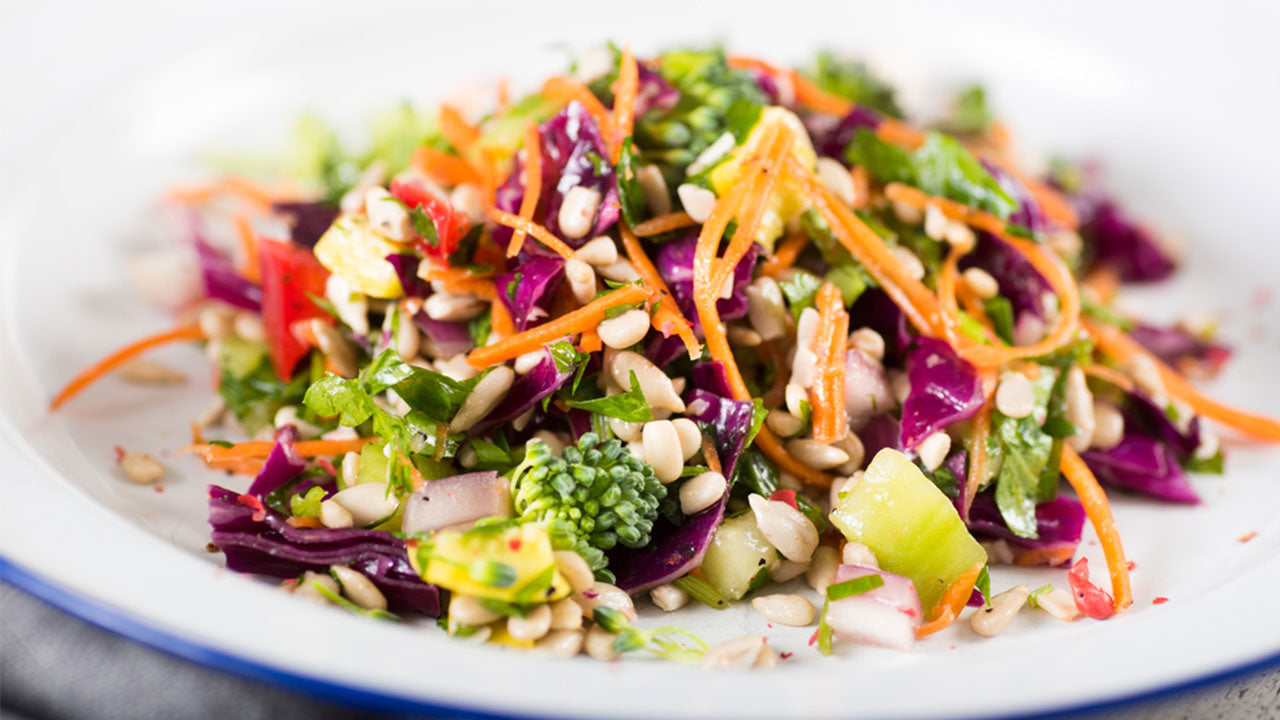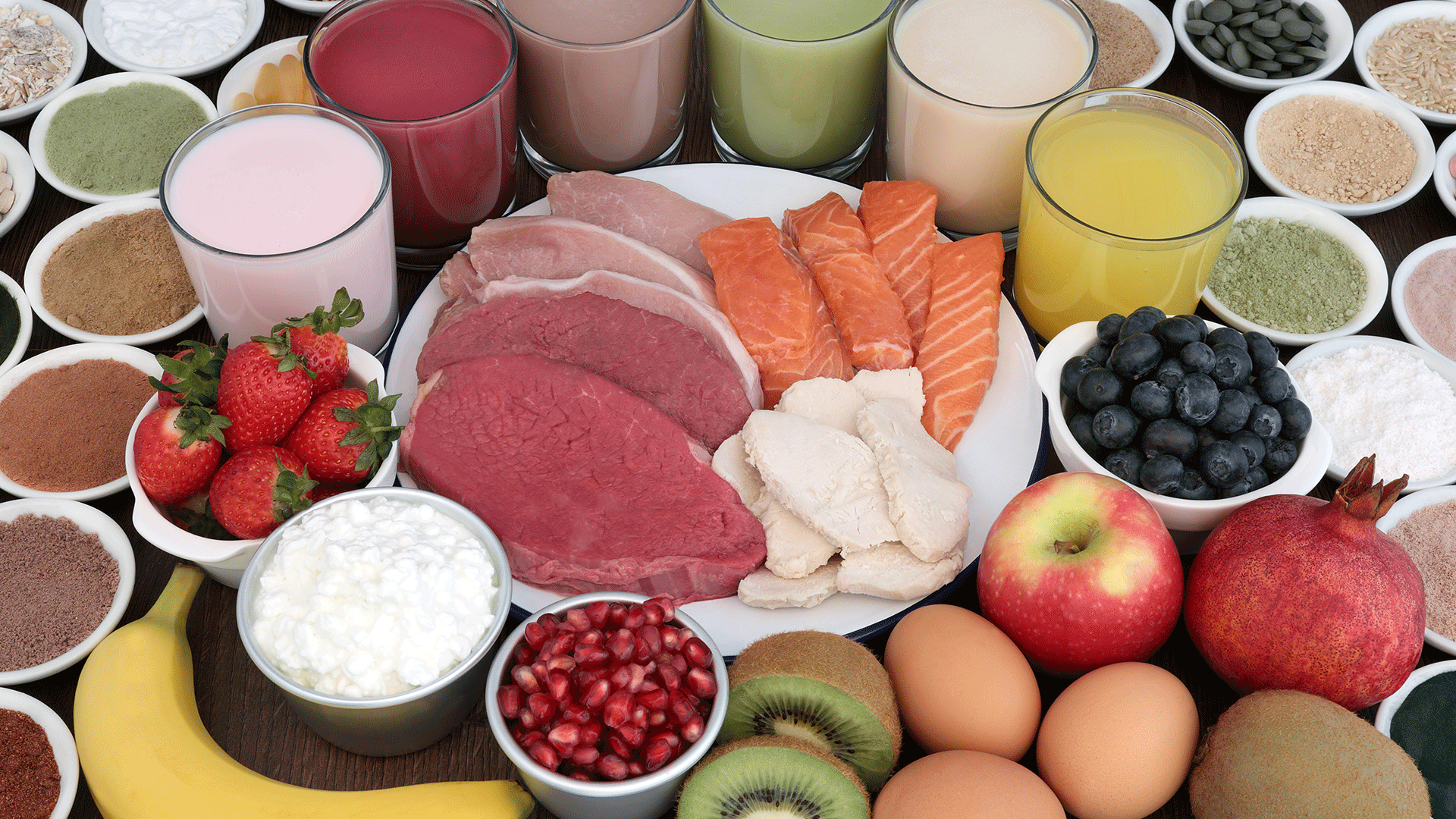Foods Rich in Sulfur and Why You Should Be Eating More of Them
 By: by Amino Science
By: by Amino Science

As an essential mineral found in proteins and the amino acids cysteine and methionine, sulfur is a critical nutrient for the human body. Sulfur is most likely known best for its sulfur compounds, which give garlic its distinctive aroma, cause tears when chopping onions, and lend a funky smell to urine, but sulfur does so much more. The mineral stabilizes and shapes some protein structures, aids in metabolism and detoxification, and keeps connective tissue and cartilage supple, making it essential that our diets contain sulfur-rich foods.
Good Sources of Sulfur-Rich Foods
Sulfur doesn't discriminate by diet. Whether you're a meat lover or a plant-based eater, there's a wealth of sulfur-rich foods to choose from.
Meat, Fish, Poultry and Other Proteins
Building and maintaining healthy skin, nails, and hair depend on protein-rich foods, such as fish, poultry, meats, nuts, and legumes. Packed with protein, eggs are also an optimal source of sulfur, which is found in both the egg yolk and the white, although sulfate content is higher in egg whites.
Protein-rich foods contain sulfur in the form of the amino acids cysteine and methionine. These amino acids provide the amounts of sulfur our cells need to function properly. In addition to helping make protein, sulfur serves as a cofactor for enzymes that result in chemical reactions.
Cruciferous Vegetables
Many fibrous, often green and non-leafy vegetables fall into the category of sulfur-rich vegetables. Cruciferous vegetables, such as wasabi, horseradish, cabbage, kale, bok choy, Brussels sprouts, and cauliflower, pack a punch when it comes to nutrients.
Brussels sprouts, asparagus, and legumes also are very high in methylsulfonylmethane (MSM), which provides a major source of sulfur. Additionally, these cruciferous veggies provide healthy doses of fiber, vitamins C, E, and K, folate, and carotenoids, as well as the sulfur-containing chemicals known as glucosinolates. Thank these chemicals for the bitter flavor and distinctive, pungent aroma that set cruciferous vegetables apart from so many others. When glucosinolates break down, for example during digestion, they form compounds, including indoles and isothiocyanates. Researchers have studied these specific compounds most often for their anti-cancer effects. Studies have shown that the compounds, indoles, and isothiocyanates can have antiviral and antibacterial effects, as well as anti-inflammatory properties.
Alliums
Other foods high in sulfur include allium vegetables, like leeks, garlic, chives, and onions. They contain organic compounds that contain sulfur, and studies in animals have shown that these vegetables may help prevent esophagus and colon cancers. Though more clinical trials need to be performed to determine their efficacy in humans, this research shows that the cancer-fighting potential of alliums warrants further exploration.

Understanding Amino Acids
Most commonly referred to as the building blocks of protein, amino acids assist in many biological functions. There are 20 amino acids in protein. Nine of them are essential, which means we must get them through nutrition because our bodies don’t produce them on their own. Since our bodies do not store them, adults need to eat healthy diets to get these nine essential amino acids: valine, leucine, lysine, isoleucine, methionine, phenylalanine, tryptophan, threonine, and histidine.
The other remaining amino acids fall into the categories of nonessential and conditionally essential. Nonessential amino acids are naturally occurring in our bodies, and we can also get them from the foods we eat. Alanine, asparagine, and aspartate are examples of nonessential amino acids.
Arginine, glutamine, tyrosine, cysteine, glycine, proline, serine, and ornithine are both nonessential and conditionally essential. This means our bodies synthesize them, but during times of sickness or stress, we may not be able to produce the amount we need. In those instances, we must ensure our amino acid needs are met through our diets or with supplementation.
Only two amino acids, methionine and cysteine, contain sulfur. Methionine is critical for good health because it is required to build proteins and produce many molecules in the body, including SAM, which is used to modify DNA. Methionine also plays a critical role in many cell functions and helps prevent liver damage in acetaminophen poisoning. This essential amino acid can be found in all Amino Co blends to help shore up any nutritional deficiencies.
Why the Consumption of Sulfur Foods Matter
In addition to providing strength and resiliency to hair, sulfur assists in many other biological processes.
Sulfur is needed to synthesize the tripeptide glutathione, which is a chain of three amino acids that is joined by two peptide bonds. Not only is glutathione a key antioxidant, but it also regulates a number of cellular processes. It helps to control the rapid production of cells, aids in the detoxification of foreign organisms and free radicals, and influences immune function.
Sulfur is integral in binding together the two chains of amino acids that form the hormone insulin, which regulates our bodies’ sugar use. Taurine synthesis also depends on sulfur. Taurine is an organic compound that contains sulfur and plays an important role in metabolizing fats, restoring insulin sensitivity, and supporting the general functions of muscles and the central nervous system.
How Much Sulfur Do We Need?
The recommended dietary allowance set forth by the Food and Nutrition Board of the National Research Council/National Academy of Sciences for methionine plus cysteine is 14 mg/kg of body weight per day. Regardless of age or sex, a person weighing 70 kilograms would need to consume about 1.1 grams per day.
Who Suffers from Low Sulfur Levels
Though sulfur is one of the most abundant minerals in our bodies and many foods contain the mineral, we can suffer from low sulfur levels. First, the American diet often includes many processed foods and carbohydrates, and not many high-protein foods. A low-protein diet can result in low sulfur levels. Sometimes, those who eat little or no protein from animals, such as vegetarians and vegans, also may have lower amounts of sulfur in their systems.
Even when we eat balanced diets, we may not have the sulfur content levels we expect. Overcooking sulfur-rich foods can compromise their nutrition, negatively impacting the amount of the mineral our bodies get. Also, industrialized farming practices impact the levels of sulfur in the soil where crops grow. The bottom line is that if we are not buying and consuming local, organic produce or acquiring our meat and produce from grass-fed animals, there's a very great chance we are not getting the essential vitamins and minerals our bodies need.

Up to 25% off Amino
Shop NowTAGS: food
Join the Community
Comments (0)
Most Craveable Recipes




 833-264-6620
833-264-6620



















